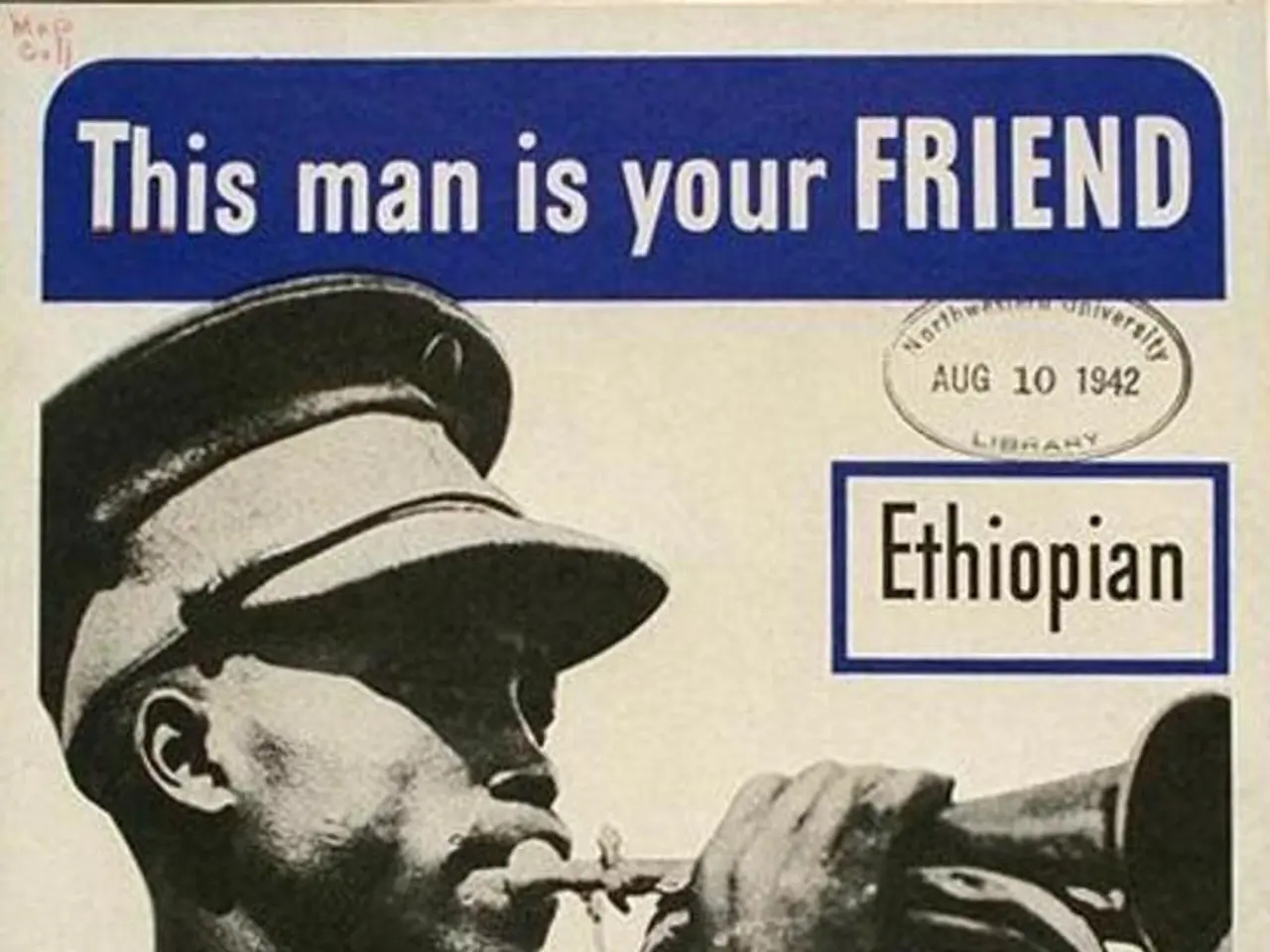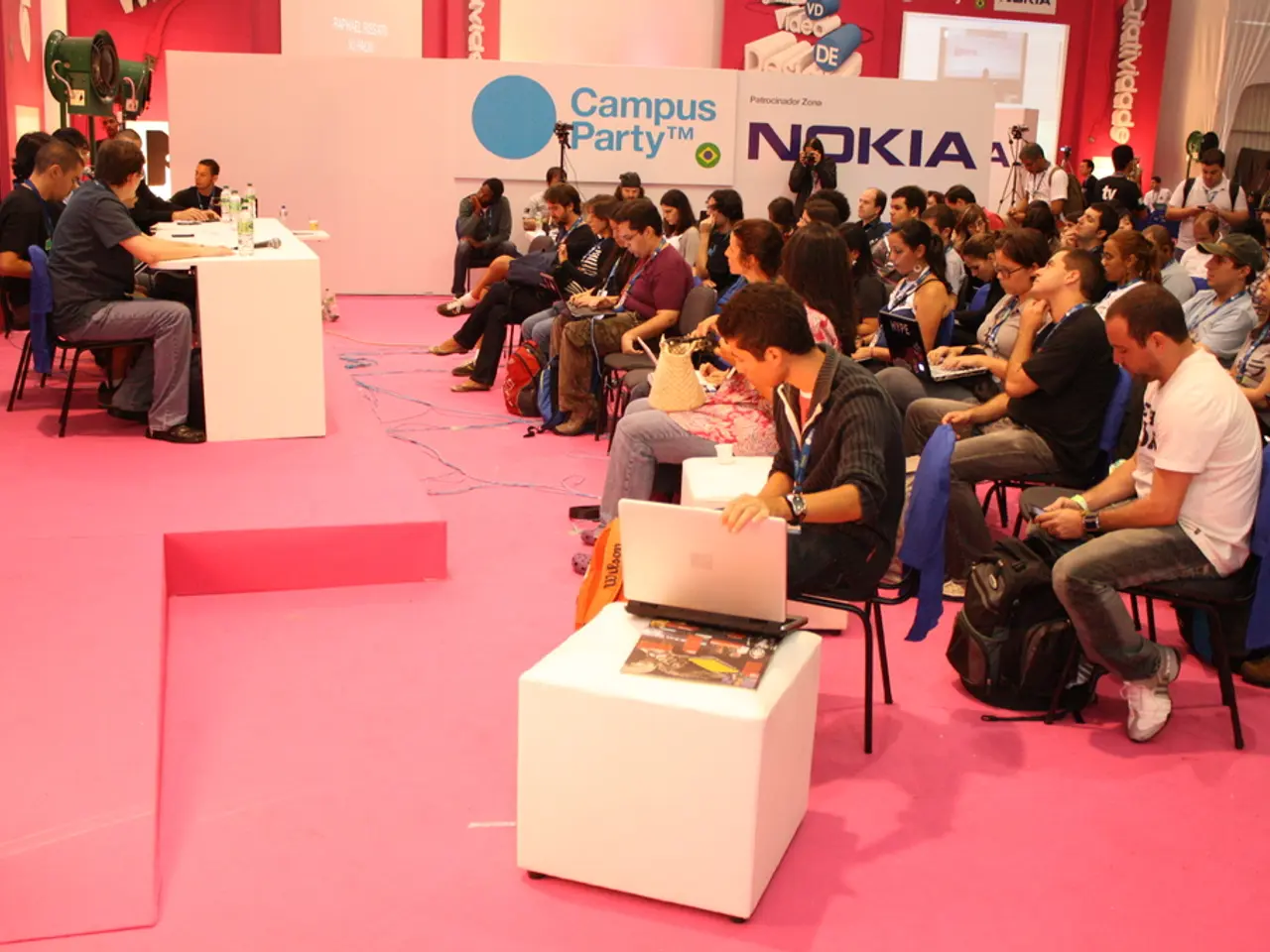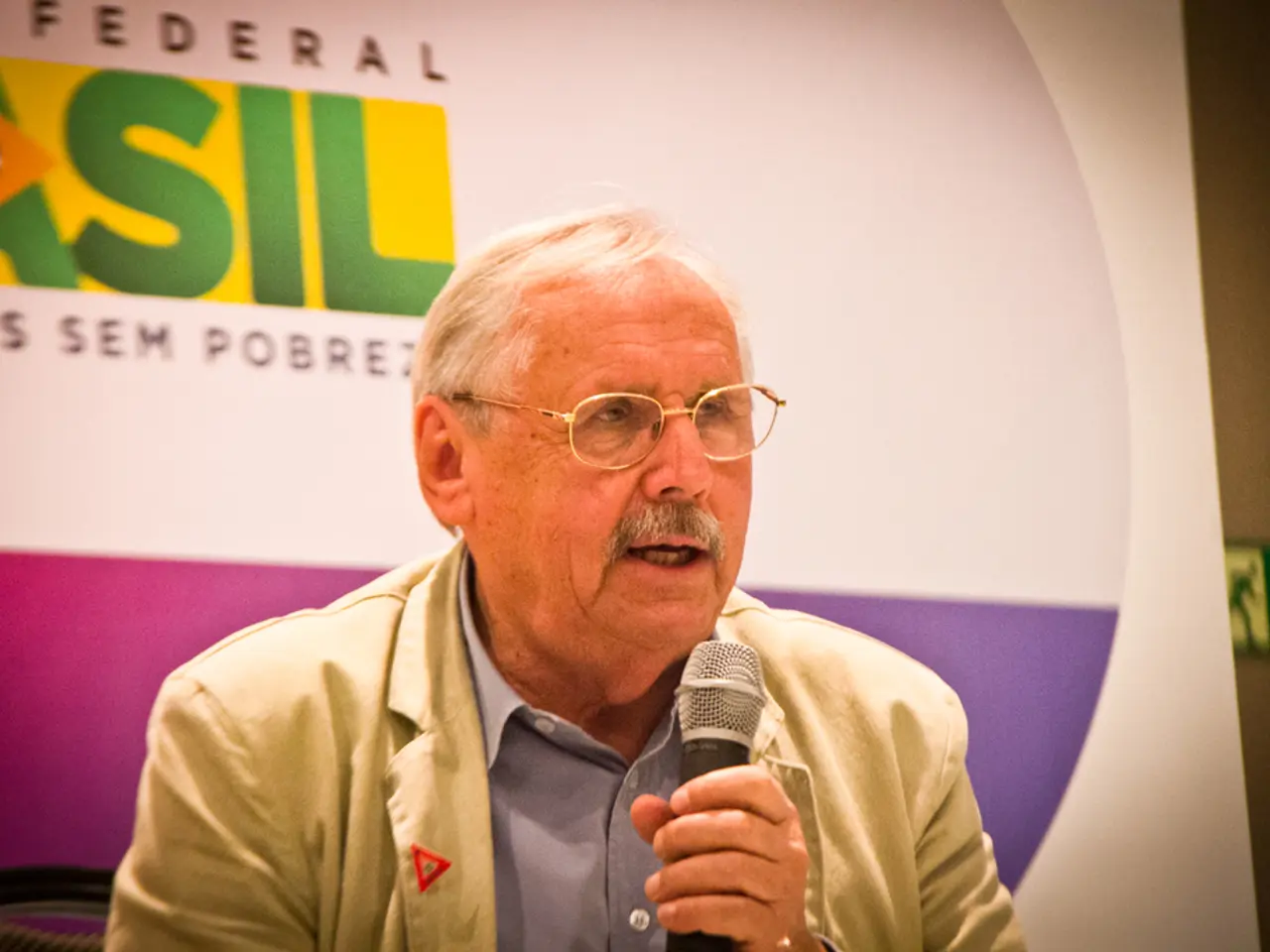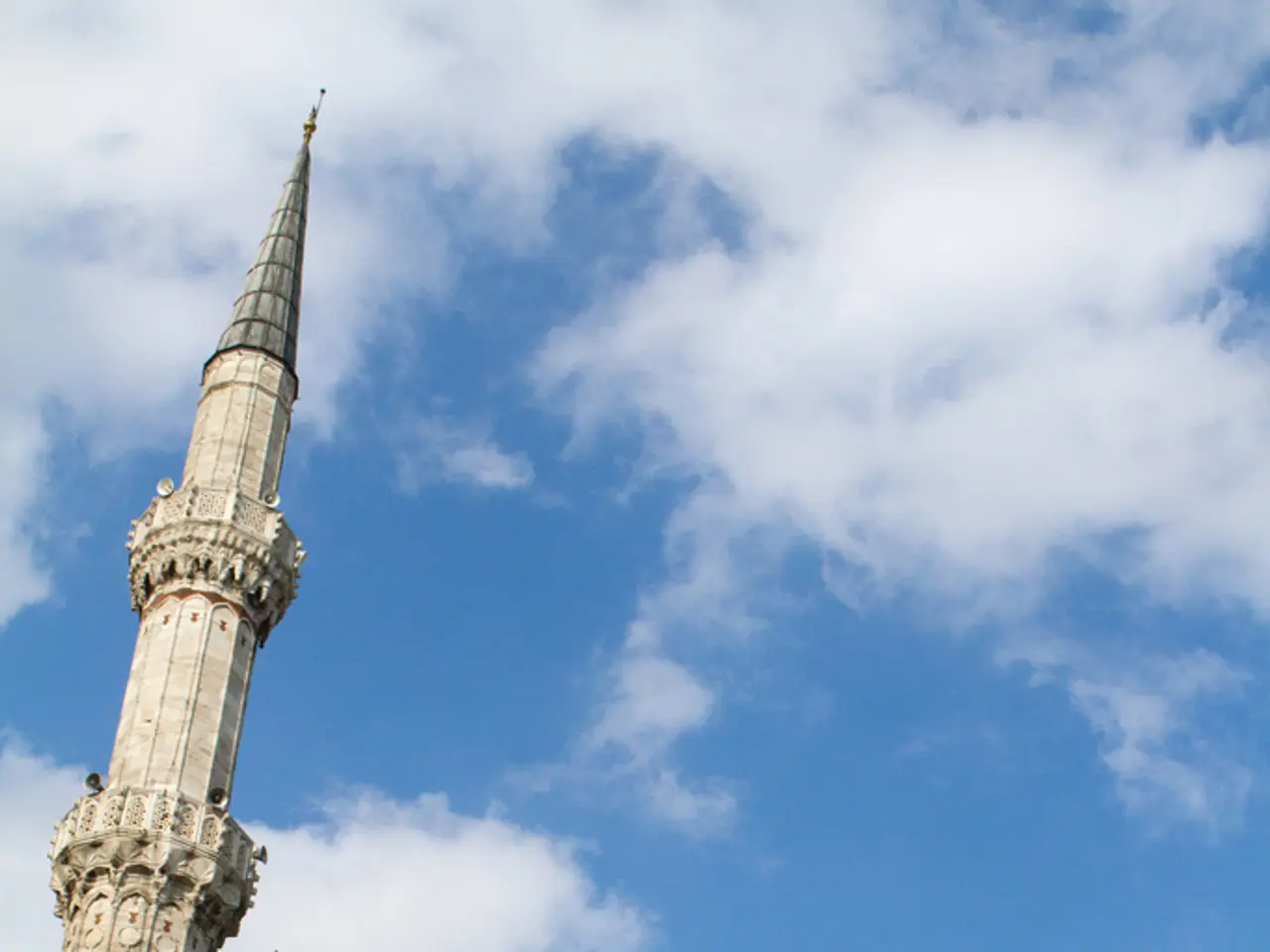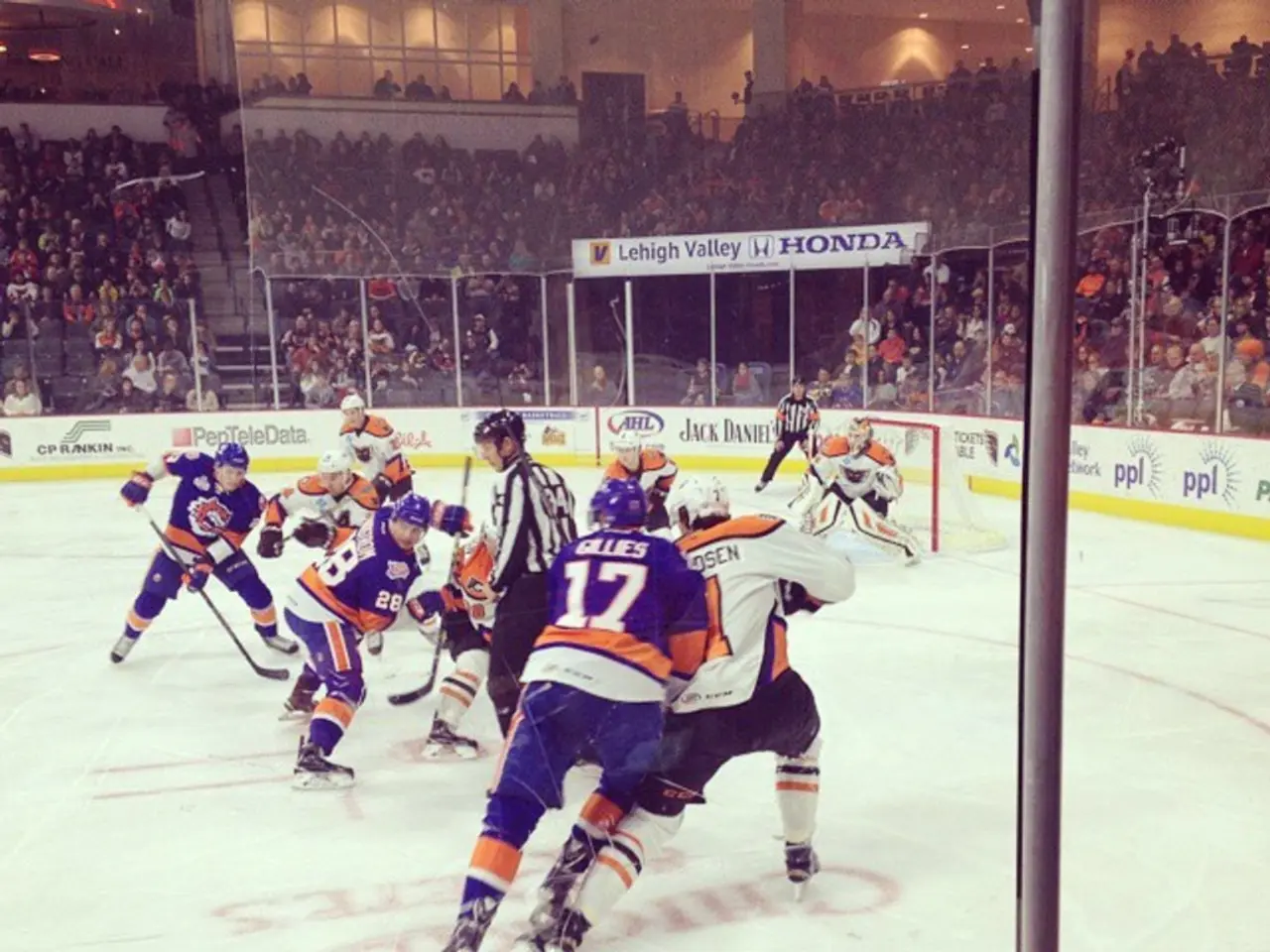Digital Interactions Hubs: The Blend of Individual Business and Public Gathering Places Online
Free Speech Frenzy: The Digital Town Square Debate
Jack Murdock
In the ever-shifting landscape of modern-day communication, the age-old constitutionally protected right to free speech is waging a hot battle in the newly crowned digital town squares. This inflammatory, all-encompassing duel that pits gigantic corporations against the sanctity of the First Amendment is, quite literally, the talk of the nation.
At the heart of this controversy stands the First Amendment of the United States Constitution, the amendment that guarantees the sacred rights of speech, religion, press, assembly, and petition, safeguarding Americans from governmental restrictions on self-expression.
Free speech, a quintessential pillar of American democracy, prohibits the government from hampering an individual's ability to express themselves in verbal or symbolic forms. However, this protection applies only when speech falls outside a set of supervised categories.
The divisive case of Brandenburg v. Ohio (1969) significantly modified the interpretation of free speech under the First Amendment. The infamous instance involved Clarence Brandenburg, a prominent leader in the Ku Klux Klan who made vague threats of violence against government officials during a Klan rally in Ohio. Convicted under the state's criminal syndicalism law – a law that prohibited advocating for violence as a means of political change – Brandenburg appealed, claiming that his incendiary discourse was protected by the First Amendment. In a landmark ruling, the Supreme Court established the "imminent lawless action" test, protecting speech as long as it does not incite immediate unlawful activity and is unlikely to do so.
School zones, a special breeding ground for controversy, have seen their fair share of First Amendment battles. Tinker v. Des Moines (1969) involved three students who donned black armbands at their public school in Iowa to protest the Vietnam War. The school district enacted a policy banning armbands, leading to the students' suspensions for their refusal to comply. The Tinkers sued, arguing that their First Amendment rights were being violated. The Supreme Court ruled in a 7-2 decision that students retain their right to free speech at school, affirming that the armbands represented lawful expression and were not disruptive to the learning environment.
Fast forward to the modern-day, and the name of the game is social media. The freewheeling, all-inclusive digital playgrounds that once served as unassuming portals for checking friends' photos or updating one's status have matured into powerful megaphones for public discourse. This transformation has sparked a heated debate over whether digital realms should enjoy the same protections under the First Amendment as their physical counterparts.
Three years ago, the doors of the digital town square were flung wide open when former President Donald Trump faced accusations of inciting the violent insurrection at the U.S. Capitol on January 6th, 2021. In the wake of this unprecedented siege, supporting acts from a host of online platforms – YouTube, Snapchat, Instagram, Facebook, and Twitter – took the stage to enforce new barriers on certain accounts, notably Trump's personal favorite at the time, Twitter, which permanently suspended his account.
The first to draw the line, Twitter (or X, as it was formerly known), cited the risk of further incitement of violence as the catalyst for the suspension of Trump's account on January 8th, 2021. The platform argued that Trump's tweets violated their Glorification of Violence policy, as they created an environment in which his supporters felt encouraged to act violently. Other social media platforms followed suit, suspending Trump's account for similar reasons. Facebook's Oversight Board endorsed the suspension, pointing to Trump's posts during the Capitol riot, which praised the insurrectionists who were actively engaged in violence.
When Trump's Instagram and Facebook accounts were unbanned a few weeks later, conservative politicians, pundits, and many users expressed outrage, claiming the bans on Trump and others who were deemed to have incited the violence of January 6th were a violation of the First Amendment right to free speech. In 2022, Elon Musk swooped in, acquiring Twitter for $44 billion, with a promise to uphold free speech as his number one priority and drastically alter its content moderation practices.
Musk, the self-proclaimed free speech absolutist, promptly enacted several controversial measures. A significant wave of layoffs swept through the company, decimating its workforce and eliminating key executives responsible for content moderation and trust and safety. This overhaul was followed by a reduction in oversight and a subsequent increase in the proliferation of harmful content on the platform. Reports indicated that the use of racial slurs skyrocketed by nearly 500% within hours of Musk's takeover. Similar spikes were observed in antisemitic, misogynistic, and transphobic language.
Another scandal erupted when Musk introduced a new verification system, allowing users to purchase the verification badge for $8 per month. Alarmingly, this system was immediately exploited, resulting in the creation of numerous fake accounts that caused significant reputational and financial damage to companies on the platform.
Despite the chaos wreaked by Musk's moves at Twitter, we must focus on an important question – is the digital town square evolving into the modern public forum?
Centuries-old public forums, such as sidewalks or city streets, have long afforded individuals the freedom to voice their opinions. These locations hold limited power for government intervention, provided public safety is not compromised.
In the realm of social media, platforms like Instagram and Facebook encompass millions of users in their client bases. What started as platforms for sharing photos and updates has transformed into a robust platform for significant public discourse, raising the question – are social media platforms evolving into the modern-day public forum?
The academic community at the Knight First Amendment Institute at Columbia University has been striving to answer this question for years. In 2018, Knight First Amendment Institute v. Trump (928 F.3d 226) pitted the Institute against then-President Trump. The lawsuit was filed on behalf of seven defendants whom Donald Trump had blocked on Twitter for critiquing him. At the time, Trump's Twitter account had 53.4 million followers, generated tens of thousands of retweets, and contained official statements from the President. The panel in the case concluded that Trump's tweets intentionally created a public forum, holdings that it was unconstitutional to deny others the right to view and comment on them, constituting viewpoint discrimination[6].
Another significant case involving a public official's social media account was Matal v. Tam (137 S. Ct. 1744) in 2017. In this instance, the Supreme Court emphasized the need for caution to prevent the government from silencing or muffling disfavored viewpoints. The court's precedent in cases like this has shaped lower courts' decisions in handling First Amendment claims, including the case against Trump which, since he was no longer president, was deemed moot, and the Supreme Court vacated the lower court decisions[7].
Confusing the Issues
At first glance, the proposition that social media should be treated the same as a classic public forum in the physical world seems reasonable. However, there is a crucial distinction between social media platforms and literal town squares – they are private entities. Social media platforms are the cream of the crop in American society, but their private corporation status does not change, nor does it invalidate the potential dangers that could arise if private actors are held to the same level of scrutiny as the government in terms of free speech. Relying on the age-old adage, we can't deny that for someone to gasp their grievances in the town square is one matter, but to vent their displeasure on someone's front lawn is a whole other ball game. The social media companies in question do not have tax dollars at their disposal to support their upkeep; instead, they rely on advertising to generate revenue. It goes without saying that manufacturers of household goods are less than enthusiastic about having their products promoted alongside hate speech, as they fear being associated with such content.
The fallout from Musk's tumultuous takeover at Twitter serves as a glaring example of the dangers that come with relaxing content controls on social media platforms. As a direct consequence of Musk's loosened reins on speech policies, advertising revenues witnessed a dramatic plunge. In addition, former President Trump found a workaround by launching his own social media platform, Truth Social.
In light of the growing influence of social media platforms in public discourse, conservative states have moved to champion free speech! Florida and Texas passed laws in 2021, with the aim of making it illegal for social media companies to ban candidates for office within their states. The legislation is met with controversy, as critics perceive it as a potential impediment to free speech, while supporters maintain that social media companies should not have carte blanche to decide what content is deemed acceptable or unacceptable[8]. Industry groups have filed lawsuits to block these laws, with the cases now under consideration by the Supreme Court in Moody v. NetChoice (2023) and NetChoice v. Paxton (2023) [9].
A Tangle of Free Speech
It is essential to acknowledge that the First Amendment, when applied to social media platforms, introduces nuances that can blur the lines between various aspects of free speech. In particular, the interpretation of violent, extremist, or hateful speech in the digital realm is a minefield plagued by intricate challenges. Speech involving threats of violence or other imminently unlawful actions is, without question, not protected by the First Amendment, whether social media platforms are public forums or not.
In conclusion, as it currently stands, social media platforms – such as Twitter – are private corporations, and the First Amendment regulations that apply to government actions do not directly affect these platforms. Whether the users are government officials or not does not alter the fact that Twitter remains a private corporation, not a government agency. The virtual town square, much like its physi gmal counterpart, serves as a platform for public expression; however, the question remains – will the ever-growing prevalence and importance of social media platforms ultimately usher in an expansion of the First Amendment's reach?
Legislatures and courts must proceed with caution when considering placing burdens on social media companies in the name of free speech under the First Amendment. To do otherwise risks jeopardizing the bedrock principles that underlie the essence of American society, namely private enterprise and free markets. The transient pulse of popular trends casts a long shadow over the social media landscape – the once-popular YouTube of yesterday gave way to today's TikTok, leaving us to ponder – should we accept the de facto role of government intervention in the name of free speech or allow the free market to reign supreme?
Regardless of whether one supports or opposes Trump, it is undeniable that his creation of a new platform – like that of many trailblazers who came before him – clearly illustrates the power of the free market to address the contentious issues of free speech in the digital era. Empowering the free market to protect the marketplace of ideas is crucial for the continued thriving of diverse perspectives and robust debate!
References- [1] "The History of the First Amendment", ACLU, Last updated: March 4, 2020, https://www.aclu.org/features/history-first-amendment- [2] Miller, Ryan, "Supreme Court gives Greenlight for states to restrict online porn amid changing tech landscape", CBS News, Last updated: June 23, 2021, https://www.cbsnews.com/news/supreme-court-upholds-state-rights-to-restrict-online-porn-amid-changing-tech-landscape- [3] "Social Media Companies are Private. Why Do Courts Treat Them Like Public Spaces?", Electronic Frontier Foundation, Last updated: March 19, 2023, https://www.eff.org/deeplinks/2023/03/social-media-companies-are-private-why-do-courts-treat-them-public-spaces- [4] Serena Lankinen, "Twitter officially becomes a public utility", USA Today, Last updated: February 9, 2023, https://www.usatoday.com/story/tech/2021/02/09/social-media-companies-should-be-considered-public-utilities-oregon-lawmaker-bill/6724462002/- [5] "Public Forum Doctrine", Cornell Law School Legal Information Institute, Last updated: January 26, 2021, https://www.law.cornell.edu/wex/public_forum_doctrine- [6] "Knight Institute v. Trump (2017)", Wikipedia, Last updated: March 18, 2023, https://en.wikipedia.org/wiki/Knight_Institute_v._Trump- [7] "Matal v. Tam (2017)", Wikipedia, Last updated: March 18, 2023, https://en.wikipedia.org/wiki/Matal_v._Tam- [8] "Florida's Social Media Law Passes Despite Concerns from Big Tech", NBC News, Published: April 27, 2021, https://www.nbcnews.com/tech/social-media/floridas-social-media-law-passes-despite-concerns-big-tech-n1263851- [9] Adam Liptak and Kara Cor My, "U.S. Supreme Court Signals It May Block Two Florida Anti-Censorship Laws", The New York Times, Last updated: March 20, 2023, https://www.nytimes.com/2023/03/20/us/politics/supreme-court-florida-antitrust.html
Secondary Sources- Batya Ungar-Sargon, "The Elon Musk Effect: Breaking Twitter Is Simply the Latest Stunt of a Man Who Wants Attention", The Forward, Published: October 28, 2022, https://forward.com/culture/473689/elon-musk-effect-breaking-twitter-latest-stunt/- Claire Malone, "Why Elon Musk's Twitter takeover matters — and may change the way American politics works online", Vox, Published: October 28, 2022, https://www.vox.com/recode/23122948/elon-musk-twitter-free-speech-social-media- Charlie Warzel, "Elon Musk's Twitter Takeover: What Now?", The Atlantic, Published: October 27, 2022, https://www.theatlantic.com/technology/archive/2022/10/what-now-elon-musk-twitter-takeover/671541/
- In the ongoing debate over free speech on social media, the acquisition of Twitter by Elon Musk has raised questions about whether social media platforms are evolving into the modern-day public forum.
- The suspension of former President Trump's accounts on multiple social media platforms, including Twitter, sparked discussions about whether digital platforms should enjoy the same First Amendment protections as physical public forums.
- The Knight First Amendment Institute at Columbia University filed a lawsuit in 2018 (Knight First Amendment Institute v. Trump) against then-President Trump, arguing that his tweets created a public forum that denied others the right to view and comment on them.
- Legislatures and courts must consider the nuances of the First Amendment when addressing violent, extremist, or hateful speech on social media platforms, ensuring that such speech is not protected while avoiding government intervention that could jeopardize the principles of private enterprise and free markets.
